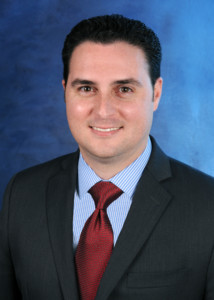By Michael J. Maurer and Anya Kwan, Best Best & Krieger LLP
Innovations are often described as “disruptive.” For cities, perhaps no recent innovation has been as disruptive – in more ways than one – as the dockless rental scooter.
Virtually unheard of prior to 2017, dockless scooters instantly provided a new mode of urban transportation, becoming a convenient way to move about cities. Of course, as dockless scooters began appearing in public locations, often without warning, they also disrupted transportation in more mundane ways – blocking sidewalks, traffic lanes, etc. Many cities quickly enacted rules to regulate the prevalence of the new devices, including the Los Angeles City Council, which passed an ordinance requiring scooter companies to comply with the Los Angeles Department of Transportation requirements. One such regulation required scooter companies to provide LADOT with live vehicle trip and location data.
LADOT’s regulation was recently upheld by the U.S. District Court for the Central District of California in Sanchez, et al. v. LADOT. The court found that the City’s acquisition of location information for dockless rental scooters is not considered a Fourth Amendment search or seizure because there is no reasonable expectation of privacy in this information.
The plaintiffs in the case alleged that LADOT violated their Fourth Amendment right against an unlawful search and seizure. However, a “search,” for Fourth Amendment purposes, must involve the invasion of a subjective privacy right. The court determined there was no search because the scooter location data is anonymous and only linked to the scooter, not the individual. Additionally, under existing precedent, short-term monitoring on a public street is not a violation of privacy rights because any person could watch someone’s activities on a public street. The court also found that, even if it was a search, it was a reasonable search because the privacy intrusion is minor and the use of the scooters is voluntary.
The ruling is a significant affirmation of cities’ and other local public entities’ ability to collect electronic data related to the use of the public right of way. Even though the plaintiffs presented the case as one about data privacy and the Fourth Amendment, the court’s ruling implicitly understood the broader context. The City was not simply curious about route and location data; it was requiring that the companies submit the data to receive a permit to use the right of way. This was not a search; it was an exaction. As transportation modes continue to evolve – perhaps in other surprising and unforeseen ways – this gives cities the ability to utilize real-time data to maintain control over access to, and use of, its public spaces.
Additionally, the fact that local governments may acquire anonymous route data enables them to not only be regulators, but also market recipients of such information. Due to the prevalence of application-based services, a tremendous amount of available route and location data already exists – it is probably a fair assumption that most people have used a phone-based application to view live traffic information and determine the fastest route. While such information is a convenience for individuals, it can be a powerful tool for governmental planning and management of transportation – assuming local governments are not precluded from actually using this data. At least in the context of dockless scooters, the court’s decision in the Sanchez case shows that cities can be proactive in acquiring and utilizing information about their own streets.
Michael J. Maurer is a partner in Best Best & Krieger LLP’s Municipal Law practice group. He advises public agencies on significant transactions, particularly in relation to development and infrastructure projects. Mike serves as city attorney for the cities of La Habra Heights and San Jacinto and as assistant city attorney for the city of Arcadia. He can be reached at michael.maurer@bbklaw.com.
Anya Kwan is an associate in Best Best & Krieger LLP’s Municipal Law practice group. She applies her previous career as a chemist to public agencies and cities, helping them navigate the technological advances that impact how they operate and serve their communities. She can be reached at anya.kwan@bbklaw.com.







